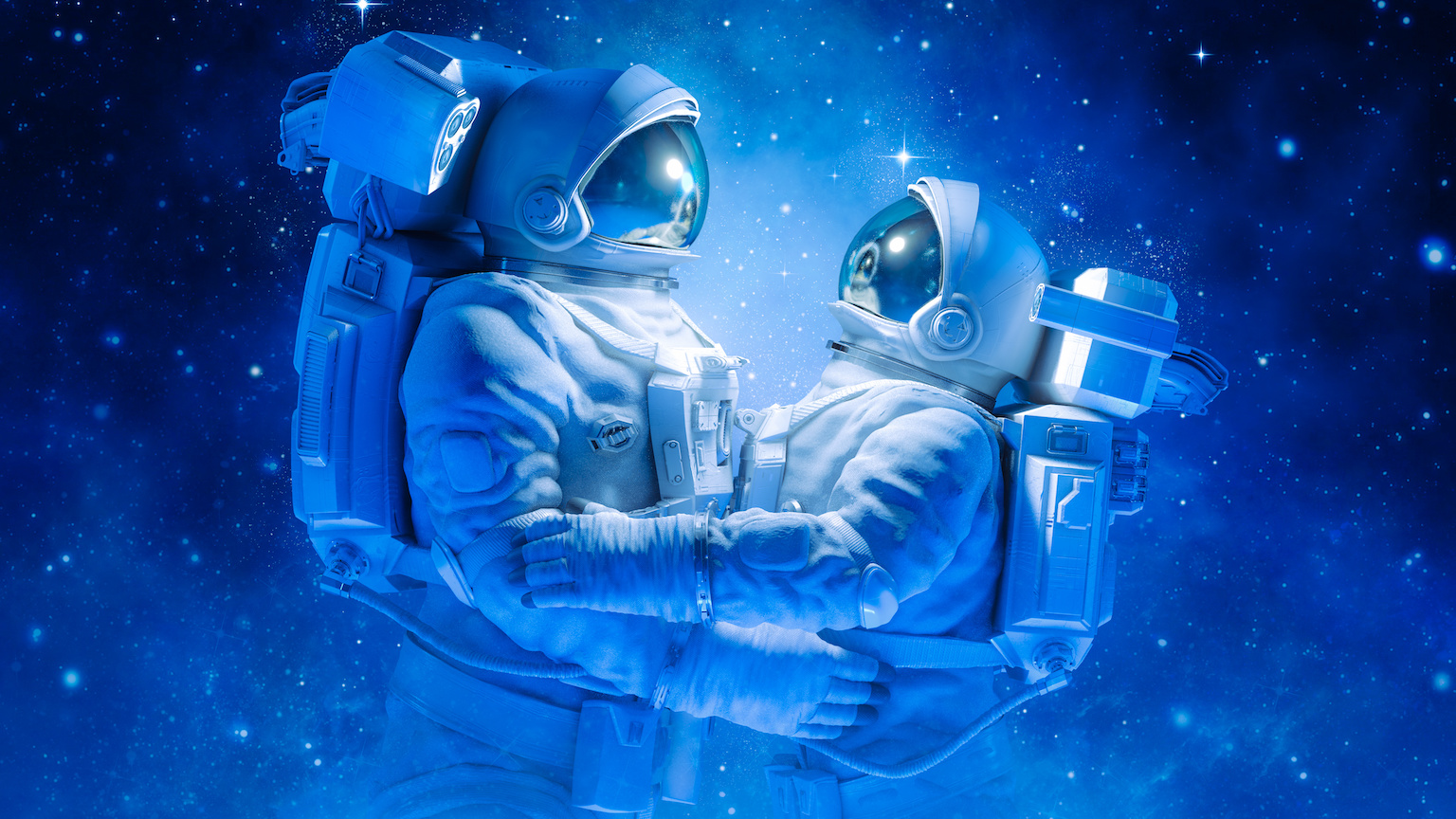Space sex: the trouble with joining the 62-mile-high club

- Whether NASA likes it or not, humans eventually will be having sex in space.
- This will pose a variety of challenges, from privacy and cleanliness to relationship issues and pregnancy.
- Researchers argue that we should develop solutions proactively.
According to NASA, no humans have ever had sex in space, but with the swift ascent of private space tourism, you can bet that humankind will soon join the 62-mile-high club.
This impending achievement, coupled with renewed efforts to populate Earth orbit, build a colony on the Moon, and travel to Mars, lay bare the urgent need for scientific research into all aspects of sex in space, a team of Canadian researchers from Concordia University and Laval University argue in a paper just published in the Journal of Sex Research.
The team, led by Simon Dubé, a Concordia University PhD candidate in psychology specializing in human sexuality, sextech, and erobotics, calls for space programs to seriously explore “space sexology,” defined as “the comprehensive scientific study of extraterrestrial intimacy and sexuality.”
Don’t ask, don’t tell
Until now, space agencies like NASA have ignored the topic of sex almost entirely, perhaps fearful of generating a controversy that could jeopardize their funding. When queried about sex, NASA officials have brushed the matter aside. Astronauts are apparently prohibited from having sex or developing intimate relationships onboard the International Space Station.
But, again, as humankind increasingly begins to embrace the prospect of colonizing low-Earth orbit and beyond through private missions, disregarding research into a basic human drive is growing less tenable. Dubé and his co-authors outlined a number of potential risks related to space sex that merit study.
Space sex matters
For starters, ionizing radiation could interfere with sexual reproduction by altering the DNA of sperm cells, egg cells, and even human embryos (though one study suggested that mammal embryos can develop normally in space). Moreover, microgravity could make sex both difficult and messy — a big problem in a setting where cleanliness is paramount. Space habitats are also cramped, remote, and not always private, making sexual needs hard to satisfy. Thinking even farther into the future, small settlements with limited intimate partners will undoubtedly breed stress, conflicts, and even sexual harrassment or assault. The further people are from Earth and the longer they are in space, the more likely that sexual and relationship-related problems will arise, Dubé and his colleagues write.
They make the case for researching solutions to these risks right away. “As technology makes extraterrestrial life and travel more accessible to the public, the people who go into space in the future — from scientists to tourists — may not have to undergo the same kind of stringent training or selection process as current astronauts,” they argue. “Producing quality science and implementing systemic changes take time, so why not start immediately, rather than wait for problems to arise?”
Dubé and his co-authors have already fleshed out a few potential areas for research. The first is designing systems and spaces that allow for eroticism to be safe, private, and hygienic. This effort may also include preliminary planning for delivering babies in space and treating any sex-related health issues. The second is creating training programs that prepare space travelers for intimacy, sexual activity, and any social problems that may arise. The third is engineering sexual technologies like toys or robots that permit clean and satisfying sexual experiences.
Ultimately, if properly researched and planned for, “intimacy and sexuality — like leisure — could help endure and normalize life in space by making it more enjoyable and less lonely,” the researchers say. Sexual activity relieves stress, lowers blood pressure, and helps with sleep, among many other benefits.
“Facilitating intimacy and sexuality in space could improve the life of astronauts and future space inhabitants,” Dubé and his colleagues add. “Intimate and sexual activities can arguably help people adapt to space contexts and normalize spacelife.”





